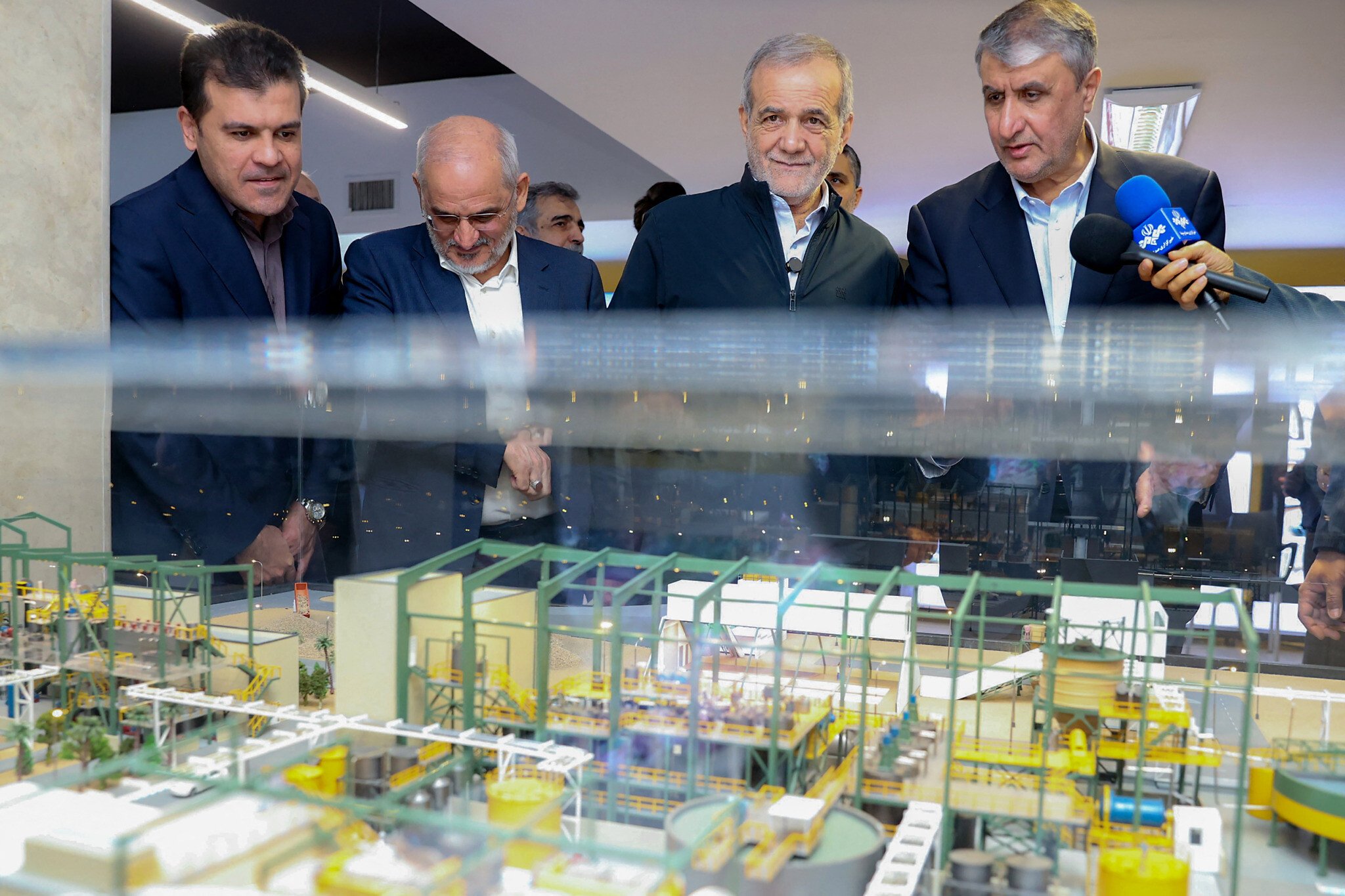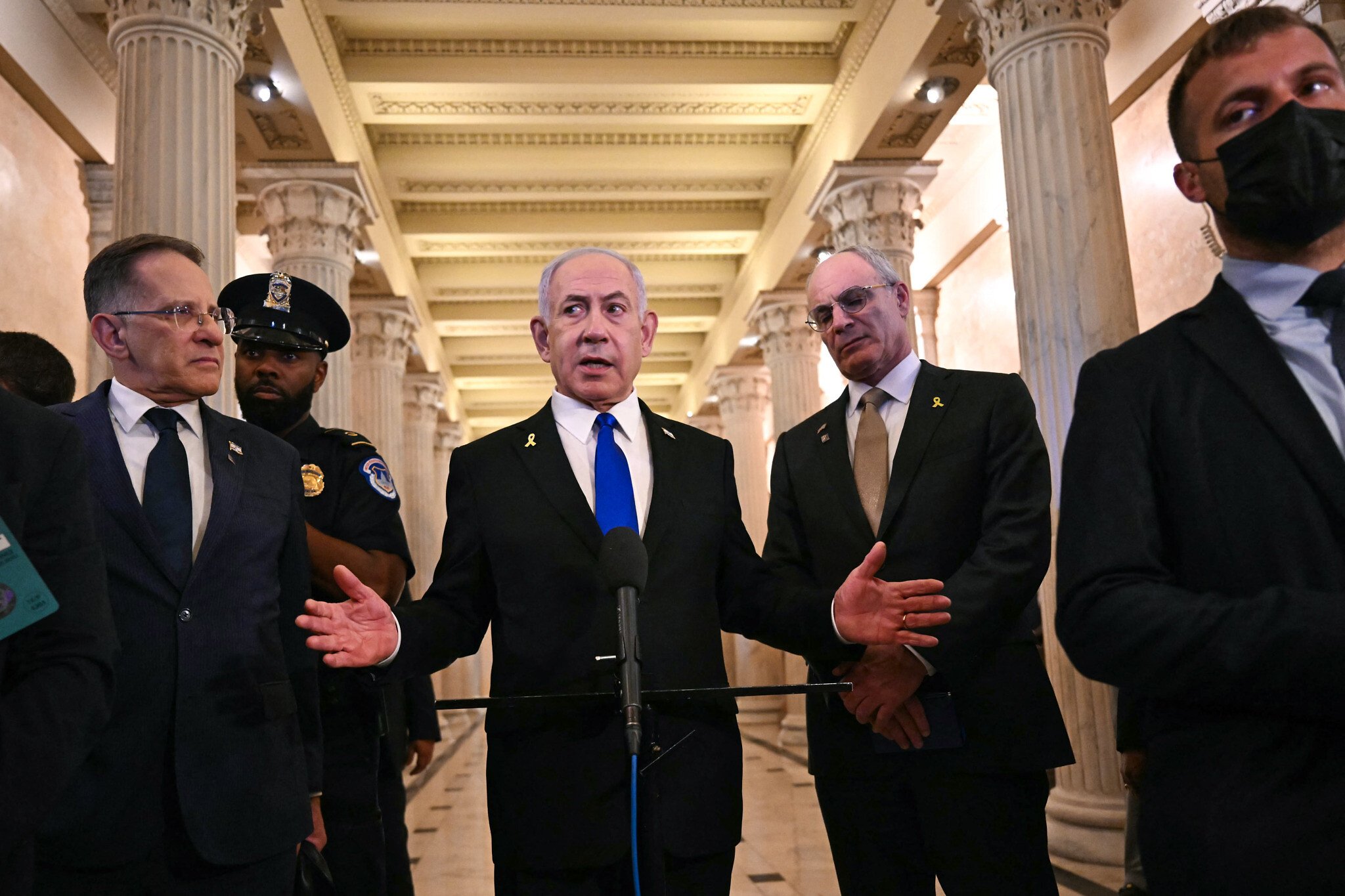



Iran remains interested in diplomacy, Foreign Minister Abbas Araghchi said Tuesday, claiming that he and US President Donald Trump’s special envoy had been “on the cusp of a historic breakthrough” before last month’s Israel-Iran war.
The comments, in an article written by Araghchi and published in the Financial Times newspaper, offered praise for Trump’s earlier negotiating efforts in a further indication that talks over Iran’s nuclear program may soon restart.
“In only five meetings over nine weeks, US special envoy Steve Witkoff and I achieved more than I did in four years of nuclear negotiations with the failed Biden administration. We were on the cusp of a historic breakthrough,” Araghchi wrote.
The Iranian foreign minister said the two sides were 48 hours from a pivotal sixth meeting when Israel launched airstrikes targeting Iranian nuclear facilities and ballistic missiles on June 13.
Israeli officials said the preemptive attack was necessary to eliminate the “existential threat” posed by the Islamic Republic, which openly calls to destroy the Jewish state. The air war between Iran and Israel lasted 12 days, during which Trump ordered US bombers to pound Iranian underground nuclear facilities.
Araghchi acknowledged having received messages indicating Washington may be ready to return to negotiations. He noted the US was one of six countries to sign a comprehensive nuclear deal with Iran in 2015, only to withdraw in 2018 under the first Trump presidency.

“Iran remains interested in diplomacy but we have good reason to have doubts about further dialogue. If there is a desire to resolve this amicably, the US should show genuine readiness for an equitable accord,” Araghchi wrote.
Later Tuesday, Araghchi met with his Saudi counterpart Prince Faisal bin Farhan al-Saud in Mecca to discuss bilateral ties and the latest developments in the region, according to the Saudi state news agency SPA.
It was Araghchi’s first visit to the Gulf kingdom, a longtime regional rival since Iran and Israel concluded their 12-day air war.
Araghchi also held “fruitful” conversations with Saudi Crown Prince Mohammed bin Salman and Defense Minister Khalid bin Salman, the Iranian foreign ministry spokesperson Esmail Baghaei said in a later post on X, without clarifying where the talks were held.
During a White House meeting with Prime Minister Benjamin Netanyahu Monday night, Trump told reporters: “We have scheduled Iran talks, and they… want to talk.” Witkoff said the meeting would take place in the next week or so.
Netanyahu appeared to be open to the prospect of renewed negotiations between Iran and the US in a statement following his Tuesday meeting with US Speaker of the House Mike Johnson.
“There are opportunities for peace that we intend to realize… We’re working together on this,” he said.

According to a senior Israeli official speaking to reporters in Washington, Trump did not surprise the Israelis when he announced direct nuclear talks with Iran in April.
“We talked to him before,” said the official as Netanyahu sat next to him.
Trump on Monday told reporters he would like to lift sanctions on Iran at some point.
“I would love to be able to, at the right time, take those sanctions off,” he said. Ahead of Netanyahu’s visit, Trump said the US was “working on a lot of things” with Israel, including “probably a permanent deal with Iran.”
Iranian President Masoud Pezeshkian said in an interview released on Monday that he believed Iran could resolve its differences with the US through dialogue.
On Tuesday, a French diplomatic source said European powers would have to restore UN sanctions on Iran if there were no nuclear deal that guaranteed European security interests.
The source spoke after a call between French Foreign Minister Jean-Noël Barrot and his British counterpart, David Lammy, ahead of a Franco-British summit.
Iran has consistently denied seeking to acquire nuclear weapons. However, it enriched uranium to levels that have no peaceful application, obstructed international inspectors from checking its nuclear facilities, and expanded its ballistic missile capabilities. Israel said it had recently taken steps toward weaponization.
Iran retaliated to Israel’s strikes by launching over 500 ballistic missiles and around 1,100 drones at Israel. The attacks killed 28 people and wounded over 3,000 in Israel, according to health officials and hospitals.
In all, there were 36 missile impacts and one drone strike in populated areas, causing damage to 2,305 homes in 240 buildings, along with two universities and a hospital, and leaving over 13,000 Israelis displaced.
